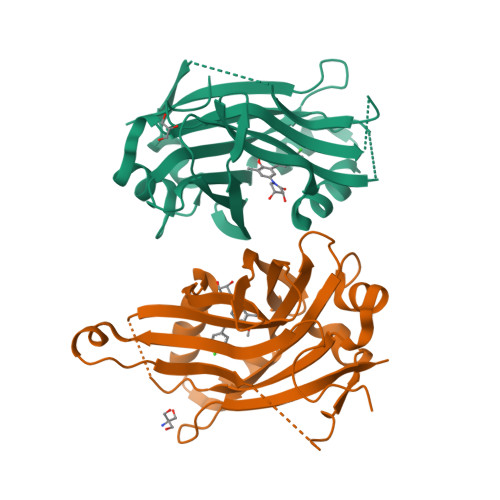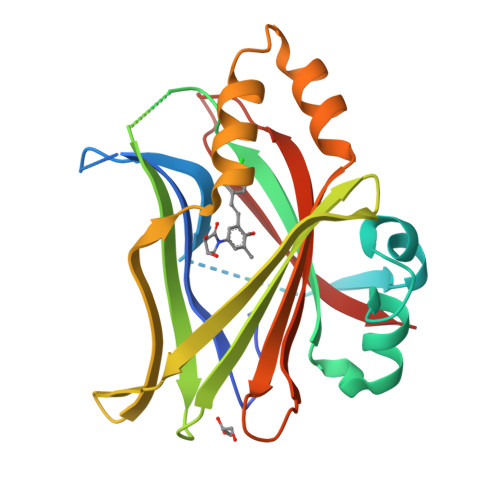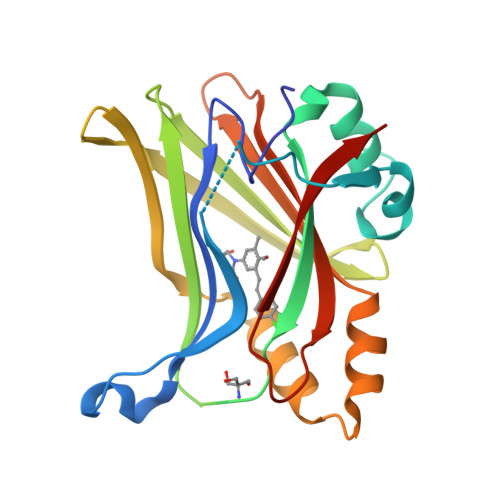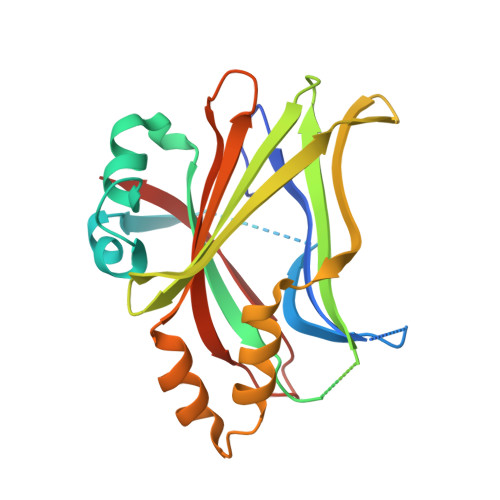Small Molecule Dysregulation of TEAD Lipidation Induces a Dominant-Negative Inhibition of Hippo Pathway Signaling.
Holden, J.K., Crawford, J.J., Noland, C.L., Schmidt, S., Zbieg, J.R., Lacap, J.A., Zang, R., Miller, G.M., Zhang, Y., Beroza, P., Reja, R., Lee, W., Tom, J.Y.K., Fong, R., Steffek, M., Clausen, S., Hagenbeek, T.J., Hu, T., Zhou, Z., Shen, H.C., Cunningham, C.N.(2020) Cell Rep 31: 107809-107809
- PubMed: 32579935
- DOI: https://doi.org/10.1016/j.celrep.2020.107809
- Primary Citation of Related Structures:
6UYB, 6UYC - PubMed Abstract:
The transcriptional enhanced associate domain (TEAD) family of transcription factors serves as the receptors for the downstream effectors of the Hippo pathway, YAP and TAZ, to upregulate the expression of multiple genes involved in cellular proliferation and survival. Recent work identified TEAD S-palmitoylation as critical for protein stability and activity as the lipid tail extends into a hydrophobic core of the protein. Here, we report the identification and characterization of a potent small molecule that binds the TEAD lipid pocket (LP) and disrupts TEAD S-palmitoylation. Using a variety of biochemical, structural, and cellular methods, we uncover that TEAD S-palmitoylation functions as a TEAD homeostatic protein level checkpoint and that dysregulation of this lipidation affects TEAD transcriptional activity in a dominant-negative manner. Furthermore, we demonstrate that targeting the TEAD LP is a promising therapeutic strategy for modulating the Hippo pathway, showing tumor stasis in a mouse xenograft model.
Organizational Affiliation:
Department of Early Discovery Biochemistry, Genentech, South San Francisco, CA 94080, USA.





















